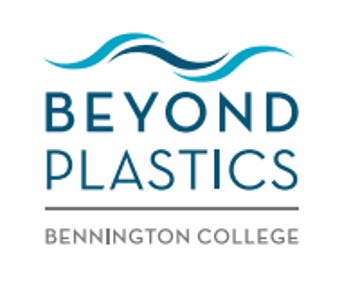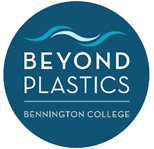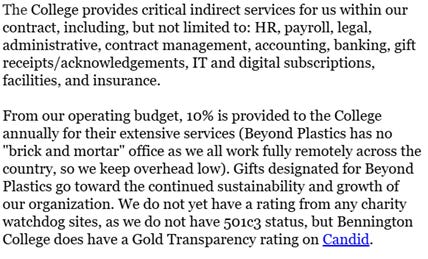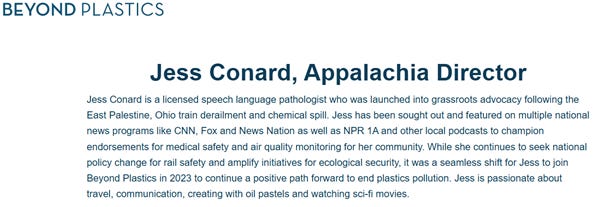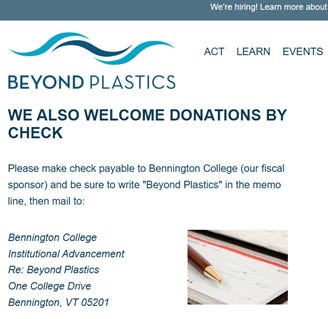Beyond Bennington College – An Activist Incubator
How a small Vermont liberal arts college became a center for funding activist NGOs
Foundations come in all shapes and sizes, but one common feature they share is that they are not often transparent about how much money they spend, from where and on what. This article looks at one case of how US academic institutions are now playing the fiscal sponsor game, acting as a foundation in name only to cash in on the activist campaign trade. The present ongoing debate on government funding of universities and their non-profit status needs to be considered in light of the non-transparent nonsense being carried out on many campuses like Bennington College.
Bennington College is a small, private liberal arts college in the town of Bennington, Vermont (2020 population: 15,333). In January 2025, the college had 797 undergraduate students under enrollment and 478 staff. They stress practical experience over academics with each student expected to do a two-month internship (which Bennington College calls “Field Work Term”). During this interruption of the academic year, the college stops classes between terms so that students can do volunteer work for course credit.
A key feature of Bennington College is the CAPA “faculty” – the Center for the Advancement of Public Action. It defines itself as a program or department focused on public action and social change but their teachers are parts of other departments. It sees itself as a “catalyst, convener, and creative space for social change” educating “undergraduate students in public action”. Almost 10% of Bennington undergraduate students are enrolled at CAPA.
Every activist foundation that is involved in political and environmental campaigns seems to be funding little Bennington College. A quick scan of their donor roll reveals foundations such as:
Bloomberg Philanthropies
Rockefeller Family Fund
Rockefeller Brothers Fund
Resources Legacy Fund (a dark fiscal sponsor working with Bloomberg)
David and Lucile Packard Foundation
Endeavor Foundation
Long Ridge Action Fund
Green Advocacy Project
Ocean Grants (note, Vermont is landlocked)
Park Foundation
The 11th Hour Project / The Schmidt Family Foundation
Surfrider Foundation
These groups do not normally fund academic scholarships in small liberal arts colleges.
The reality is that Bennington College, via the CAPA “faculty” attracts these foundations and their lucrative funding as an activist incubator. The small college is training the next generation of environmental activists and has caught the attention of the fiscal sponsor consultants managing large swathes of philanthropic wealth.
Of the nearly $20 million that Bennington raised from donations in 2024, 14% went to CAPA for public activism campaigns (68% of the remaining funds were unrestricted and only 5% went to scholarships and student support). This begs the question: What does a small liberal arts college with 797 students do with $20 million of annual funding if less than a million goes to students?
Tuition at Bennington is around $60,000 per academic year. That is quite a lot for a liberal arts diploma but fortunately there are foundations that are willing to award scholarships directly to students who are activist inclined (ie, volunteer to do their “field work term” at CAPA). The Endeavor Foundation, for example, launched an Environmental Fellowship Program at Bennington in 2020, initially donating $290,000 for “funded internships for Bennington students to work in nonprofits with a focus on environmental justice” during the field work term. The 14 students who applied for this grant for the 2024 academic year would, assumedly, each receive almost $20,000 for their two month credit course volunteering at an environmental NGO (plus receiving course credit).
No wonder these young environmental activists have no idea what the real world is like.
Case Study: Beyond Plastics
How Michael Bloomberg is using Bennington to run his anti-plastics, anti-petroleum campaigns
Bloomberg Philanthropies has set up at least two NGOs at Bennington: Beyond Petrochemicals and Beyond Plastics. As Beyond Petrochemicals has practically zero transparency (managed by the dark Resources Legacy Fund fiscal sponsor), this article will focus on the latter.
Beyond Plastics, one of the leading anti-plastics activist groups in the United States, is technically, not a registered NGO. It is operating and receiving donations via Bennington College, and the activists who work for the “NGO” use a Bennington College “.edu” email address. They even have Bennington College displayed in their logo:
In a short email correspondence with a representative of Beyond Plastics, or Bennington College (it was not made clear to me), I was informed that:
Why doesn’t Beyond Plastics, with its large budget, register as a 501(c)(3) non-profit? If they have no offices in Bennington, and no employees from Beyond Plastics actually work as full-time faculty of Bennington College, what is their actual link to the academic institution? In true foundation fashion, Bennington College is serving as a non-transparent front group to hide the budget and funders of Beyond Plastics. So while the money is good (see below), the information on their actual funding is completely dark.
These are the same activists demanding transparency from industry.
As large as its media footprint has been, Beyond Plastics has been built around one particular person, it’s president, Judith Enck. Enck left her role as a regional director at the EPA in 2017, on the day that President Trump was inaugurated for his first term of office. Enck vowed to fight Trump however she could. She refers to Beyond Plastics not as an NGO but a “nationwide project”.
Enck has been a visiting adjunct professor at Bennington College since 2019 (when she set up Beyond Plastics), teaching one course a year with different titles, like Environmental Policy in 2020 or Beyond Plastics in 2021. These courses are organized by the Bennington College Social Work department. She is also a visiting faculty member at the Center for the Advancement of Public Action at Bennington.
Is Enck an academic or an activist? There is a gray area here that is made worse by the college serving as the actual Beyond Plastics non-profit front group. Enck merely seems to have tied herself to Bennington for the CAPA activist incubator, access to free interns and little more.
It was mentioned above that the Endeavor Foundation had donated $290,000 in 2020 to Bennington for environmental justice field term scholarships. All recipients of this scholarship were mentored by none other than Judith Enck (who herself led the courses). It appears that “Professor Enck” teaches at Bennington mainly for the opportunity of recruiting students for activism work (at none other than Beyond Plastics). See Enck’s review below of the Class of 2024 “activist scholars”.
Beyond Credible?
As Beyond Plastics claims to be in Bennington College, is funded via donations filtered through the college as a non-profit entity and its activists use a Bennington.edu email address, you would expect them to have an office on campus. It should at least be a floor of an academic office building to house their 17 staff. Otherwise, the college would just be serving as an astroturf front-group for campaigns managed by a former EPA warrior activist with an axe to grind.
As my correspondence with Bennington College confirmed, there is no office, Beyond Plastics does not exist as a legal entity, has no 501(c)(3) status and publicly declares no budget.
Looking at the contact details provided in a Beyond Plastics press release, its credibility as an NGO seems to be … lacking depth.
The contact details suggest that Bennington College has given Beyond Plastics staff Bennington.edu email addresses, but no office or phone numbers. The area code for Bennington, Vermont phone numbers is 802, but none of the contact numbers for this “NGO” seem to be in the state. Enck’s number is in Albany, New York. Ms Valliant’s number is in Baltimore, Maryland.
Jessica Conard’s number is a bit curious, as it is the area code for Columbus, Ohio. In 2023, she had recently been recruited by Beyond Plastics, claiming her to be a long-time resident of East Palestine, Ohio, but the area code for numbers from that region is not 614 but rather 330. The town Ms Conard speaks so closely and so personally about is on the Pennsylvania state line and is rather far from where she pays her phone bill (across state).
This staff description wants to portray Jess as a concerned Mom who suddenly stood up to fight when a train derailed in her East Palestine backyard. Beyond Plastics failed to mention that Conard was also involved with a Mom’s activist group, Mom’s Clean Air Force, based in New York City and “affiliated” with the Environmental Defense Fund, where she had had some broad media attention in New York and Washington before Enck signed her up to speak out against plastics following the East Palestine train derailment. In several of the press campaigns following the East Palestine accident, Mom’s Clean Air Force was involved with Beyond Plastics, including their Washington campaign in July 2023, where Conard appeared on their behalf. But Mom’s Clean Air Force was no longer part of the coalition by December 2023 after Conard signed on with Enck and co. Hmm.
Who Funds this Band of Activist Moms?
All of these campaigns, staff, publications and protests cost money and we are made to believe that Beyond Plastics is funded either by Bennington College (a small, non-profit, private college) or via donations from concerned citizens from around the world. And the Moms volunteer for peanuts! Their donation page even gives it a rather folksy tone.
In reality, Beyond Plastics is not funded by small donations or academic institutions. The principle funders are the Rockefeller Brothers Fund and Michael Bloomberg, whose foundation, Bloomberg Philanthropies, also set up another NGO group, Beyond Petrochemicals. Bennington College is merely acting as a front group, taking 10% off the topline from all donations.
Beyond Plastics seems to be beyond transparency as their website does not acknowledge where their funding comes from, so we need to turn, once again, to the rigorous work of Influence Watch.
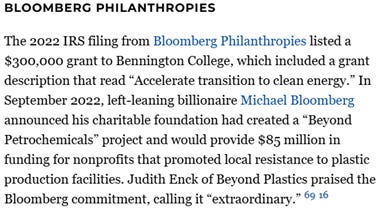
Meanwhile, someone like Michael Bloomberg can go around pretending his political meddling is just him being a patron of the academe (while deducting his activist campaign contributions courtesy of the American taxpayers). Since 2022, other large philanthropies within the left-leaning activist network (Schmidt Family Foundation, Long Ridge Action Fund…) have joined in funding Beyond Plastics via Bennington College. Source.
Deducting 10% off of all donations for “administrative service fees”, business is good for the small private college with 797 undergrads. 10% of the $85 million from Michael Bloomberg alone is not merely chump change.
Should Universities Act Like Foundations?
The present debate on the charitable status of American academic institutions like Harvard University is being distracted by political rhetoric when the issue is rather clear. There are many questions that need to be addressed that were lost in the communications rhetoric over Palestine.
Should universities, even those like little Bennington, be allowed to collect millions of dollars, tax-free, from foundations and special interests?
Should they be able to act as foundations or fiscal sponsors?
Should they be allowed to non-transparently fund such ragtag bands of NGO activists like Beyond Plastics?
Should Beyond Plastics be allowed to lobby, fundraise and campaign if it does not exist in any legal form, is not at all transparent as to which interest groups are behind its funding and does not have an office?
And with adjunct professors running their own NGOs on campuses, using large dollops of foundation funding to entice students to volunteer for course credit, is this what the academe should be?
Some basic common sense points: Universities are not foundations. Activist leaders are not professors. A two-month volunteer internship at an NGO does not merit academic credit. Transparency is not only for the stupid.
Reform of this sector is badly needed.



